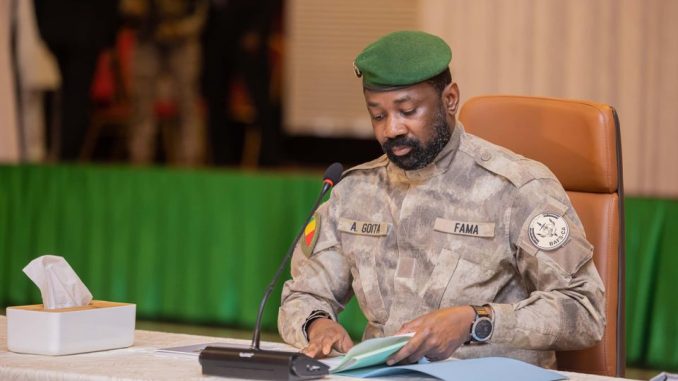AES: Mali formalises the validation of the alliance’s confederation bodies

During its latest session, Mali’s Council of Ministers took a significant step in strengthening regional cooperation by officially ratifying the governing bodies of the Sahel States Alliance Confederation (AES). This move marks a pivotal moment in the integration process of the three member nations: Mali, Burkina Faso, and Niger.
The Ministry of Foreign Affairs presented a report during the weekly meeting, leading to the adoption of documents related to the ratification of the AES Confederation Treaty.
Originally signed on July 6, 2024, in Niamey during the inaugural summit of AES heads of state, this treaty establishes the legal and institutional framework for the new regional entity.
The Council of Ministers’ session was presided over by Colonel Assimi Goïta, Mali’s transitional president and current chair of the AES.
This occasion also served as a platform for the Council to reaffirm the commitment of the three nations to deepen their collaboration in defense and security, with the objective of safeguarding their sovereignty and territorial integrity.
The AES leaders emphasized the need for coordinated efforts to address security threats, particularly in a region facing significant challenges like terrorism and transnational crime.
Furthermore, the Confederation seeks to harmonize the diplomatic stances of the three member states on major geopolitical issues.
Such coordination is vital to ensuring that the AES’s voice is influential on the international stage, particularly regarding regional security, economic development, and international cooperation.
Mali’s ratification of the AES governing bodies underscores the determination of the three countries to build a united and resilient community of shared destiny.
This initiative serves as a model of regional cooperation in West Africa, with the aim of overcoming common challenges through collective and coordinated action.
Titi KEITA











